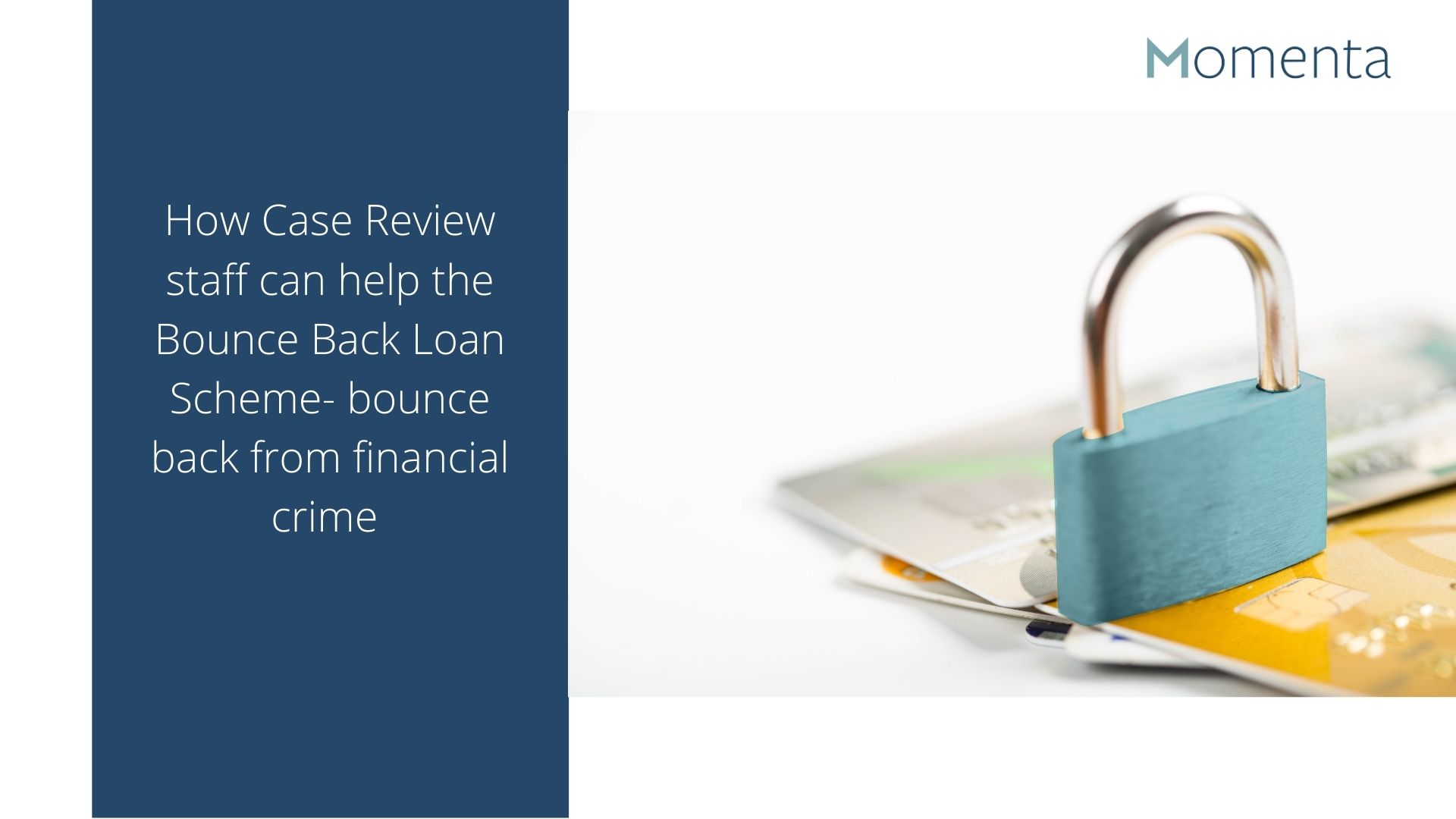How Case Review staff can help the Bounce Back Loan Scheme bounce back from financial crime
As with many cases of financial crime, criminals use weaknesses to develop their tactics and it’s been no different from the Bounce Back Loan Scheme. The scheme was created to help smaller enterprises who could not access other COVID financial support get the funds they needed to stay afloat, and they came with a 100% government-backed guarantee for loans up to £50,000 [1]. The loans interest only in the 1st year followed by straight-line amortisation in years 2 – 6 do not have to be paid off for several and most lenders are offering a range of flexible payment options.
According to the BBC, it is now expected that banks will issue loans totalling between £38bn-£48bn, up from an estimate of £18bn-£26bn. Given the underlying government guarantee banks made much lighter checks as their processing teams were under vast amounts of pressure to get the funds into accounts of desperate businesses as soon as possible. This has allowed criminals to use this weakness to fraudulently pocket funds leaving the public purse potentially exposed to huge losses. The criminals used existing small business information available in the public domain to apply for loans and have subsequently left many companies in utter dismay as loans that have been processed fraudulently using their names.
The National Audit Office (NAO) expressed concern and stated that 60% of customers could fail to pay back the loans because of weak credit checks and fraudulent applications [2]. The FCA has also expressed concern over the Bounce Back loan Scheme. They are currently working with the Treasury to develop contingency plans to try and mitigate the after-effects of these significant fraudulent activities [3].
The British Business Bank commissioned a review completed by PwC highlighting that while some risks can be mitigated, there remains a “very high” level of fraud risk, caused by self-certification, multiple applications, lack of legitimate business, impersonation, and other organised crime [4]. These risks are exacerbated by the speed at which they were approved as well as the fact that repayments are not scheduled to begin until the 13th month after the money has been paid to the borrower’s bank account, meaning criminals had the perfect opportunity to commit a fraud that wouldn’t be discovered for over a year
The scheme is not the only target fraudsters have hit. HM Revenue and Customs (HMRC) has estimated that up to £258m in self-employed grants could have been fraudulent through the Self-Employment Income Support Scheme. With £12.9bn allocated in 4.7 million grants, that would mean 2% could have been paid out in error or fraud[5].
So, What now? Well simply put, taxpayers could lose up to £26bn on loans because of financial crime and default. It is evident that taking advantage of this new remote-working landscape; criminals have managed to acquire wealth beyond their wildest imagination.
What will be needed is a massive drive for debt collection and fraud investigation arrangements to take place to try and lessen the impact on taxpayers. An army of case review staff will be required to carry out mass collection and recovery activities as a result. Banks will need to implement stronger fraud detection models internally and invest in external resource to help conduct investigations at speed and with efficiency.
Current working conditions mean businesses are needing to stand up additional capacity remotely and at speed. Sourcing, vetting, and onboarding even small teams capable of being managed remotely have brought new challenges during the pandemic. Banks will be receiving numerous requests to support their clients meet the resourcing challenges presented by COVID-19 etc. Their clients will be requiring a complete turn-key solution.
Momenta specialises in providing large scale teams of people on demand and at speed – this will enable you to provide a cost-effective turnkey solution – or specific elements to complement your capacity and skillsets. Get in touch with us today to see how we can help your remediation efforts.

